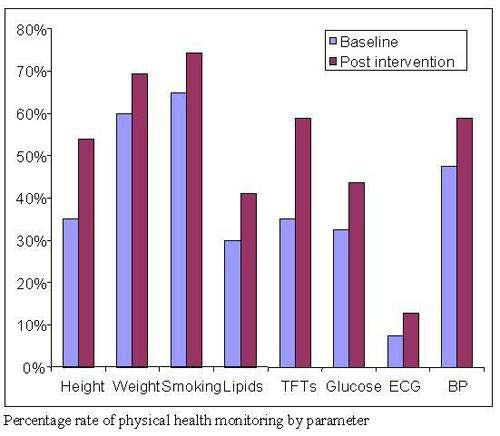No CrossRef data available.
Published online by Cambridge University Press: 16 April 2020
It is well recognised that individuals with severe mental health difficulties have increased risks of significant physical health problems and that some of the treatments for mental health problems can cause physical health difficulties as side effects. It is also known that people with mental health difficulties do not present themselves regularly for physical health monitoring as suggested by national and international guidelines. We show how a secondary care community mental health service cooperated with primary care general medical services to increase the take up of physical health monitoring by patients with severe and enduring mental health problems.
Staff in the community mental health team which served a rural/small urban population identified patients with severe and enduring mental health difficulties or those patients on medications linked to physical problems and contacted the primary care physicians responsible for the patients’ general care with patient details and encouraged patient attendance for physical health monitoring. Physical monitoring included blood pressure, ECG, glucose, thyroid, lipids, height and weight. Post-intervention attendance figures show an increase of 30% in patients attending physical health reviews compared with pre-intervention figures. The intervention has been now rolled out to a larger catchment area of 25000 persons.
[Physical health monitoring by individual parameter]

Comments
No Comments have been published for this article.